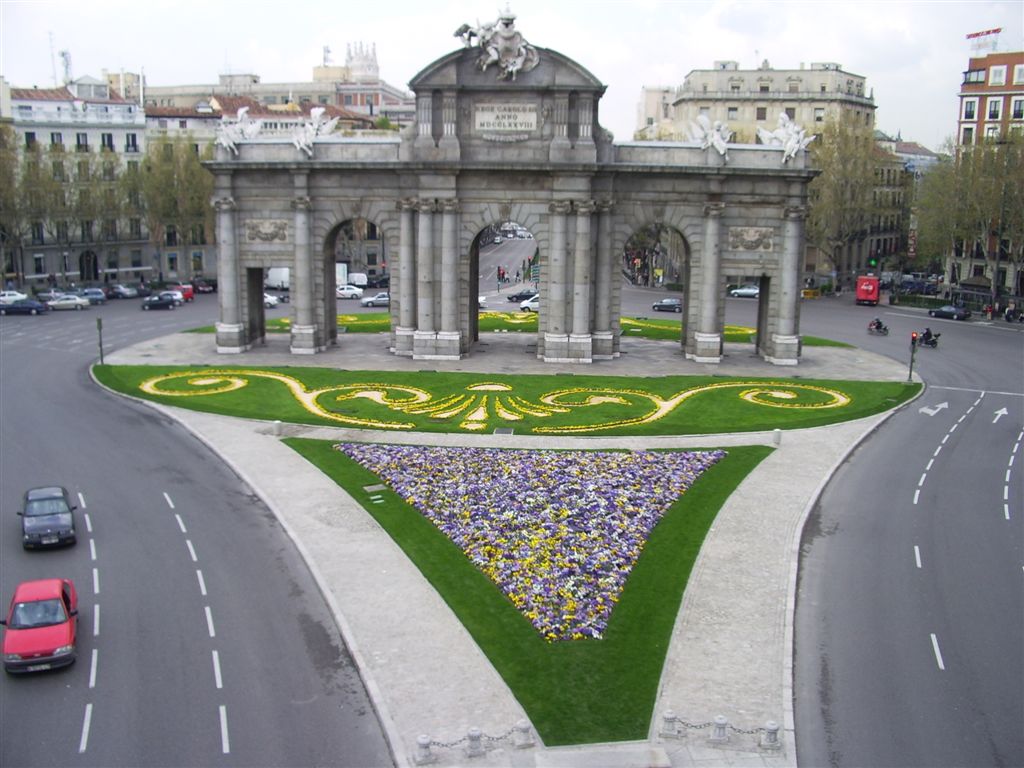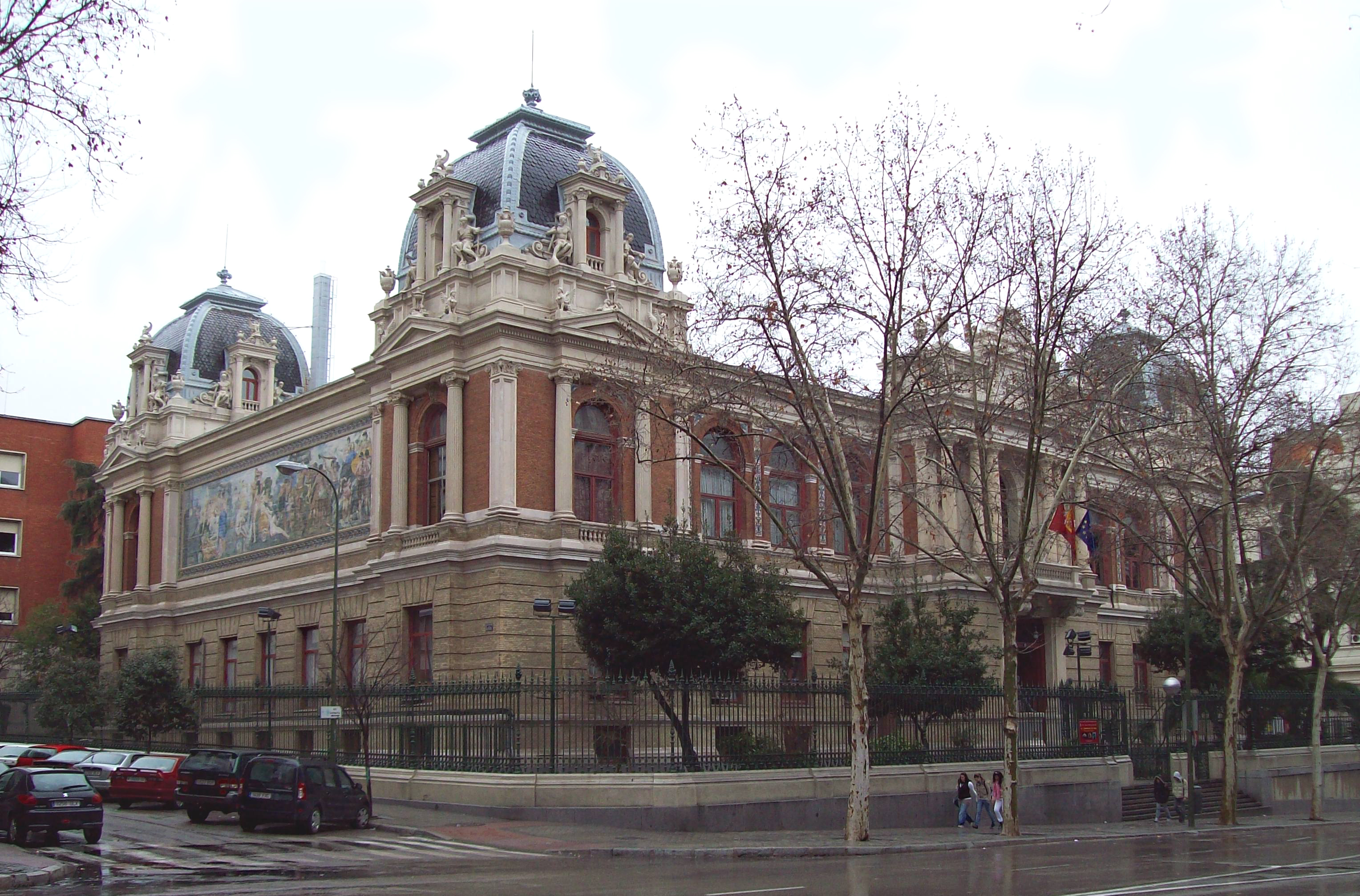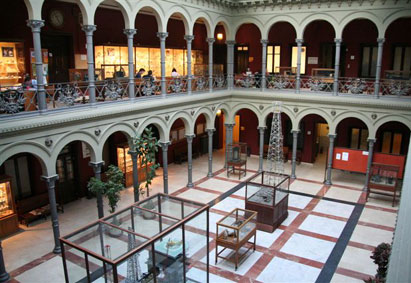|
IMPORTANT DATES (2013):
|
Conference Venue
Skip to Conference Venue Information
 No city on earth is more alive than Madrid, a beguiling place whose seer energy carries a simple message: this city knows how to live. It’s true that Madrid doesn’t have the immediate cachet of Paris, the monumental history of Rome or the reputation for cool of other Spanish cities as Barcelona, Granada, Salamanca or Toledo. But it’s a city whose contradictory impulses are legion, the perfect expression of Europe’s most passionate country writ large. This city has transformed itself into Spain’s premier style centre and its calling cards are many: astonishing art galleries; relentless nightlife (what Hemingway wrote in the ‘30s remains true to this day: “Nobody goes to bed in Madrid until they have killed the night”); an exceptional live-music scene; a feast of fine restaurants and tapas bars; and a population that’s mastered the art of the good life. It’s not that other cities don’t have these things. It’s just that Madrid has all of them in bucket-loads. As a result, Madrid boasts one of the most packed calendars of concerts, festivals, shows, sports events and exhibitions in the world. Take a peek at a selection of the most important events programmed to take place this year and start planning your next visit.  Madrid has three of the finest art galleries in the world - if ever there existed a golden mile of fine art, it would have to be the combined charms of the Museo del Prado (with Las Meninas and La Rendición de Breda by Velázquez; La Maja Vestida & La Maja Desnuda, El Tres de Mayo by Goya; paintings by Dürer, El Greco, Tintoretto, Caravaggio, Rubens or Rembrandt, among others), the Centro de Arte Reina Sofía (with Gernica by Pablo Picasso or Muchacha en la Ventana by Salvador Dalí) and the Museo Thyssen-Bornemisza (with paintings by Monet, Sissaro, Miró, Picasso or Van Gogh). Beyond the museums’ walls, the combination of stunning architecture and feel-good living has never been easier to access than in the beautiful plazas, where terrazas (cafes with outdoor tables) provide a front-row seat for Madrid’s fine cityscape and endlessly energetic streetlife. Throw in some outstanding city parks (the Parque del Buen Retiro, in particular) and areas like Chueca, Malasaña and Salamanca, which each have their own identity, and you’ll quickly end up wondering why you decided to spend so little time here. Among its wonderful parks and leisure centres, one of the newest and most ambitious projects is the Madrid Río enclave. The Madrid Río project originated when the section of the M-30 ring road running parallel to the Manzanares River was moved underground, resulting in an area of parkland 10 kilometres long. The river bank has thus become an integral part of the city centre, and now offers Madrilenians and visitors an area surrounded by vegetation and filled with wide a range of sports, leisure and cultural facilities. If you want to spend a day in the city centre, begin in Plaza Mayor, with its architectural beauty, fine terrazas (cafes or bars with outdoor tables) and endlessly fascinating passing parade. Wander down Calle Mayor, passing the delightful Plaza de la Villa, and head for Palacio Real. There’s no finest place to rest than in Plaza de Oriente. Double back up towards the Puerta del Sol, and then on to Plaza de Santa Ana, the ideal place for a long, liquid lunch. Time for some high culture, so stroll down the hill to the incomparable Museo del Prado, one of the best art galleries of the world. In anticipation of a long night ahead, catch your breath in Parque del Buen Retiro before heading into Chueca or Malasaña for great restaurants.
There are some interesting Unesco World Heritage cities close to Madrid worth to be visited in a day-tryp by train: El Escorial. The imposing palace and monastery complex of San Lorenzo de El Escorial is an impressive palace, rising up from the foothills of the mountains that shelter Madrid from the north and west. The one-time royal getaway is now a prime little town overflowing with quaint shops, restaurants and hotel catering primarily to throngs of weekending madrileños. The fresh, cool air here has been drawing dwellers since the complex was first ordered to be built by Felipe II in the 16th century. Most visitors come on a day trip from Madrid. Toledo. Toledo is Spain's equivalent of a downsized Rome. All you need to cover the city's sights is a pair of sturdy cobble-proof shoes. The city's labyrinth of narrow streets, plazas and inner patios is also reminiscent of the medinas (towns) of Damascus, Cairo or Morocco's Fez, although the historic diversity of Christians, Jews and Muslims equals an intriguing combination of churches, synagogues and mosques. Add to this a lofty setting, high above Río Tajo, and it's no surprise that Toledo is one of Spain's most-visited cities. Ávila. Ávila's old city, surrounded by imposing city walls comprising eight monumental gates, 88 watchtowers and more than 2,500turrets, is one of the best-preserved medieval bastions in all Spain. At night, when the walls are illuminated to magical effect, you will wonder if you've stumbled into a fairy tale. Within the walls, Ávila can appear caught in a time warp. It's a deeply religious city that, for centuries, has drawn pilgrims to the cult of Santa Teresa de Ávila, with many churches, convents and high-walled palaces. As such, Ávila is the essence of Castilla, the epitome of old Spain. Segovia. Unesco World Heritage-listed Segovia has always had a whiff of legend about it, not least in the myths that Segovia was founded by Hercules or by the son of Noah. It may also have something to do with the fact that nowhere else in Spain has such a stunning monument so Roman grandeur(the soaring aqueduct) survive in the heart of a vibrant modern city. Or maybe it's because art really has imitated life Segovian-style - Walt Disney is said to have modelled Sleeping Beauty's castle in California Disneyland on Segovia's Alcázar. Whatever it is, the effect is stunning: a city of warm terracotta and sandstone hues set amid the rolling hills of Castilla and against the backdrop of Sierra de Guadarrama.
June in Madrid should be hot and dry. However, there is an expression that is worth noting - "Hasta el cuarenta de mayo no te quites el sayo" ("Until the fortieth of May, don't take off your raincoat"), that is, don't put your wet-weather clothes away until 9th June.
 The Conference will be held at Escuela Técnica Superior de Ingenieros de Minas (Higher Technical School of Mining Engineering of Madrid), a magnificent building from the 19th century. The architect, Ricardo Velázquez Bosco, designed some of the most impressive buildings in Madrid’s city centre, such as Palacio de Cristal in Parque del Retiro and Palacio de Fomento in Atocha.  The Escuela de Minas was originally the Academia de Minas, founded in 1777 in Ciudad Real during Carlos III's reign. But it was not until 1893 that it founded its current emplacement in Calle de Ríos Rosas, 21, in Madrid. Under Carlos III reign, Madrid enjoyed a golden era in architecture and culture reflected nowadays on many neoclassical buildings dating from this period: Palacio de Correos, Museo del Padro, Palacio de Cristal, Escuela de Minas, etc. During the Conference, attendees will be able to enjoy the presentations in the best possible scenario: a beautiful historical building where knowledge has been transmitted from professors to young students for over a century. On the right, you can see the gorgeous inner yard where Poster Sessions will take place. Address
Higher Technical School of Mining Engineering of Madrid How to arrive to the Venue
From Barajas Airport
| |||||||||||||||||||||||||||||||||||||||||||||||||||